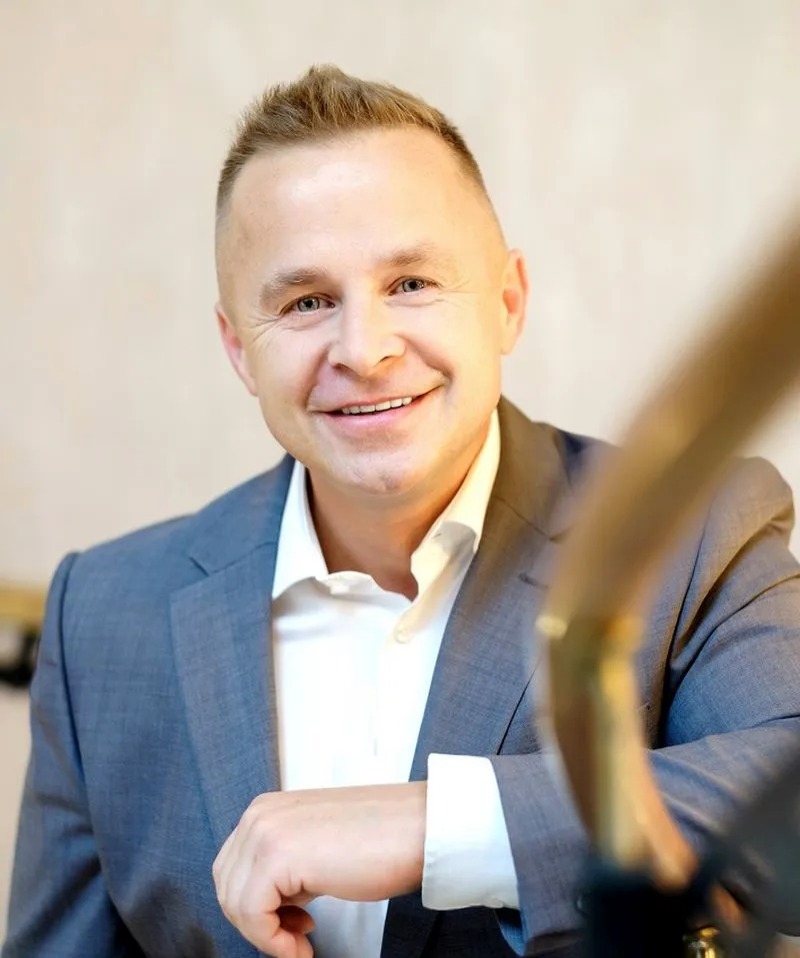Dubai, UAE – May 2025 – Roman Ziemian today announced the emergence of a new wave of AI-driven startups transforming the Gulf region, marking a major milestone in the GCC’s technological evolution. With global investors and innovators turning their focus to the Middle East, Ziemian emphasized the region’s role in shaping the next phase of smart, purpose-led innovation.
From Abu Dhabi to Riyadh, Manama to Muscat, artificial intelligence is no longer a concept of the future. It’s rapidly becoming the engine driving solutions across finance, mobility, healthcare, education, logistics, and sustainability. As a long-time advocate for innovation that balances progress with purpose, Ziemian believes the Gulf is uniquely positioned to lead the next frontier of intelligent, inclusive, and locally relevant technologies.
Local Talent, Global Tech: The GCC’s New Class of Innovators
The GCC region is producing a new generation of founders and companies that don’t just “do AI” — they’re building smarter solutions for uniquely local challenges. According to Ziemian, the region’s most promising AI ventures are rooted in relevance.
Tarjama, for example, is revolutionising language accessibility in the UAE through natural language processing. “In a region with dozens of dialects and industries, Tarjama’s AI-powered translation tech is solving a very real need — breaking communication barriers without losing cultural nuance,” Ziemian explains.
In Saudi Arabia, Nana is reshaping the grocery industry through predictive inventory management and hyperlocal delivery routes — vital for a country with vast geography and rapidly growing urban centers.
Meanwhile, Dubai-based Sarwa is giving young professionals access to smart, Sharia-compliant investment tools through AI-driven portfolio management — a feat that merges tradition with modern tech innovation.
Derq, another standout, uses AI and machine vision to make streets safer, reducing accidents by analyzing real-time data from intersections. “This is smart mobility at its best — preventative, proactive, and aligned with Dubai’s ambition to be the smartest city in the world,” adds Ziemian.
Other notable startups include Lamsa, a personalised Arabic edtech platform supported by Abu Dhabi’s tech ecosystem, and Rizek, a homegrown services marketplace that is now integrating AI to match users with skilled professionals based on real-time availability and historical behavior.
Government-Led Innovation Fuels Growth
Roman Ziemian points out that one of the biggest drivers of AI adoption in the region is top-down commitment. “The UAE’s National AI Strategy 2031 is not just a policy — it’s a blueprint. Saudi Arabia’s Vision 2030 has placed technology at its core, and Qatar’s National AI Agenda is already reshaping education and public services,” he says.
From the Mohammed Bin Zayed University of Artificial Intelligence (MBZUAI) in Abu Dhabi to Hub71, NEOM’s Oxagon, and King Abdulaziz City for Science and Technology (KACST), the region is investing in the infrastructure, education, and capital needed to sustain innovation for decades.
“Where else in the world are governments investing so heavily in AI literacy at both the institutional and individual level? The GCC is not just a launchpad — it’s a long-term home for innovation,” says Ziemian.
Why the GCC Is the Ideal Playground for AI Entrepreneurs
Beyond infrastructure and funding, Ziemian credits cultural adaptability and openness to change as critical to the region’s success. “The Gulf nations are incredibly dynamic — young populations, ambitious leadership, and a desire to leapfrog legacy systems. It’s the perfect storm for tech evolution.”
He also sees a unique opportunity in cross-border collaboration. “Startups here have the advantage of scaling across six countries with aligned visions and similar market gaps. What works in Dubai often works in Riyadh, Doha, and beyond.”
Ethical AI and the Importance of Purpose
While the excitement is palpable, Ziemian urges startups and investors not to lose sight of ethical responsibility. “AI can do extraordinary things — but without integrity, it can also amplify bias, widen inequality, and erode trust,” he warns.
He calls for building AI systems that are transparent, inclusive, and culturally sensitive. “It’s not enough to be data-driven. We must be humanity-driven.”
Ziemian is also a proponent of purpose-led entrepreneurship — the idea that tech companies should create value not just for shareholders, but for society. “In the GCC, we have the opportunity to create a new narrative — one where innovation is rooted in tradition, and progress is measured not just by profit, but by impact.”
What’s Next for the GCC’s AI Future
As someone who has spent the last decade mentoring founders and investing in frontier tech, Ziemian sees a golden age ahead. “We’re just scratching the surface. From AI-powered mental health apps to predictive energy grid systems and climate-tech platforms, the next five years will define the region’s global footprint.”
He encourages venture capitalists to look beyond short-term gains and support companies building original, locally inspired solutions — not just clones of Western models.
“To all the founders in the GCC: be original, be relentless, and be responsible. The world doesn’t need another Silicon Valley. It needs something smarter, and that something is being built right here.”
Contact:
Roman Ziemian
roman@romanziemianmobility.com





























